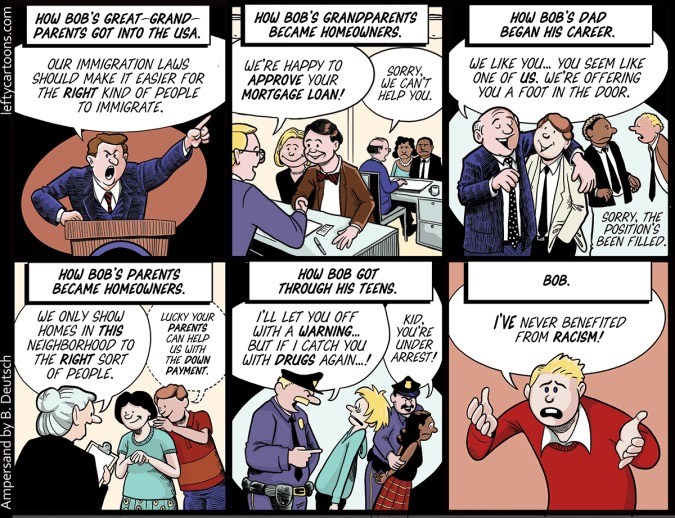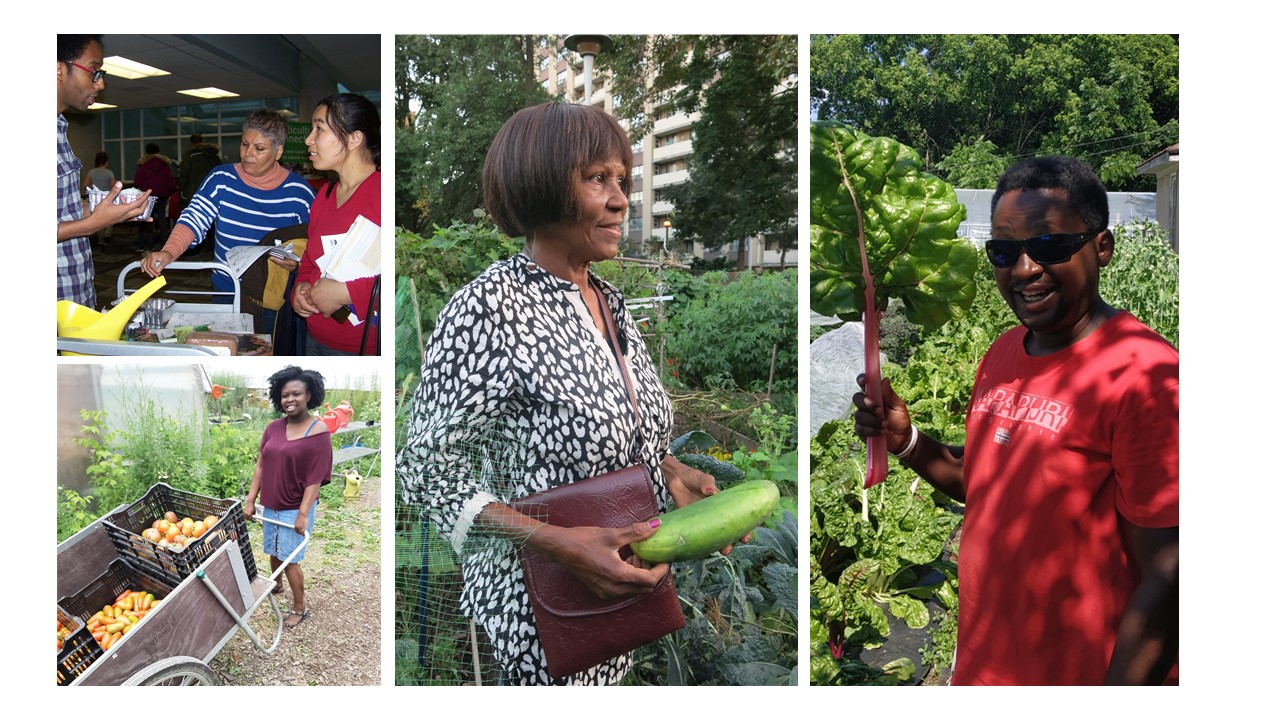Dismantling anti-Black racism
I want to learn more. Where do I start?
We’re often asked by White colleagues who want to become better allies where they can start. Here are a few suggestions and a short list of resources.
1. Begin with your own research.
We’ve included links and references to a wide range of articles, websites, videos, books and other media. We’ve heard from our Black colleagues that teaching White people about racism can leave them exhausted. Taking responsibility for your own learning helps ease that burden.
Research is less about becoming knowledgeable and more about approaching relationship-building with a good mindset. It will help you understand your unconscious biases and cultivate the openness and humility you’ll need to act respectfully.
2. Develop a “learning attitude”
Get ready to listen and reflect! Be prepared to hear challenging and difficult truths about other people’s experiences and yourself. Be aware of your own reaction to what you’re hearing and learn how to respond constructively. Are you feeling defensive or personally attacked? Understand that this is not easy work.
3. Support Black-led initiatives
Consider spending less time inviting Black people to White-led events, projects and partnerships and spend more time going out to hear Black speakers, support demonstrations and community events, and explore the work of Black artists.
Keep in mind that some events or spaces may give priority access to BIPOC people (Black and Indigenous people and people of colour). Please understand that organizers are either trying to create a safe space for people impacted by racism or ensuring that opportunities are available to those who need them most.
4. A few questions and concepts to take on the journey
What is my motivation for doing this? Who benefits?
How does my social location (race, gender, economic status, age, physical and mental health) affect how I see any given situation? How might that situation look different from another perspective?
Who is making decisions?
It's okay to make mistakes, it's part of learning something new
Black individuals are diverse, not everyone will have the same experiences, histories or opinions.
Don't assume you know. Ask.
“Nothing for us, without us”
BIPOC (Black, Indigenous and People of Colour)
Sometimes the focus of antiracist work is on Black and Indigenous people as opposed to other racialized groups. Racism is not monolithic and people of different identities will experience racism differently. Research has shown that Black and Indigenous people tend to be the racialized groups most impacted by food insecurity, poverty and police violence.
Resources
Although there are structural differences in Canada and the US and racism manifests itself differently, there is still much to learn from our neighbours. We have included US resources as well.
Challenging white privilege and changing mindsets
Robin Di Angelo offers a list of thoughts, feelings and behaviours that compare mainstream and anti-racist approaches. It’s a very useful tool for becoming aware of your own reactions and thought processes.
Other articles from Robin Di Angelo:
https://gen.medium.com/how-white-people-handle-diversity-training-in-the-workplace-e8408d2519f
https://www.huffpost.com/entry/why-its-so-hard-to-talk-to-white-people-about-racism_b_7183710
https://robindiangelo.com/ https://robindiangelo.com/resources/
http://www.groundworkforchange.org/what-is-white-privilege-white-fragility.html - an Indigenous website with relevant resources and definitions of terms
 Cartoon by Barry Deutsch patreon.com/barry
Cartoon by Barry Deutsch patreon.com/barry
https://whitenonsenseroundup.com/ - lists of resources and blog posts from a collective of White activists
Cultural humility is a way of working and living with others without assuming that your knowledge and culture is best. Some examples:
https://www.youtube.com/watch?v=SaSHLbS1V4w Vivian Chavez on cultural humility
http://www.fnha.ca/wellness/cultural-humility
https://www.apa.org/pi/families/resources/newsletter/2013/08/cultural-humility.aspx
https://metro.co.uk/2020/06/12/emotional-impact-watching-white-people-wake-racism-real-time-12839920/
Kimberlé Crenshaw coined this term to refer to multiple dimensions of identity and how they can interact to deepen
and complicate oppression.
A short description of intersectionality: https://www.youtube.com/watch?v=ViDtnfQ9FHc
and a longer TED talk:
https://www.ted.com/talks/kimberle_crenshaw_the_urgency_of_intersectionality?language=en
A PDF with a definition and self-reflective questions: http://also-chicago.org/also_site/wp-content/uploads/2017/03/Framing-questions-on-intersectionality-US-Human-Rights-Network-2013.pdf
Food justice
Message from Leticia Deawuo, Director of Black Creek Community Farm and Chair of Seed Change https://weseedchange.org/words-from-seedchange-chair-we-cannot-talk-about-food-without-talking-about-racism/
https://torontolife.com/food/when-youre-black-youre-at-greater-risk-of-everything-that-sucks-foodshares-paul-taylor-on-the-links-between-race-and-food-insecurity/
We don’t farm because it’s trendy; we farm as resistance, for healing and for sovereignty
http://inthesetimes.com/rural-america/entry/22578/black-farmers-food-sovereignty-systemic-racism-land-reform-urban-farming
https://www.yesmagazine.org/issue/decolonize/2018/03/02/black-farmers-reviving-their-african-roots-we-are-feeding-our-liberation/
https://foodprint.org/issues/food-justice/
https://www.youngfarmers.org/wp-content/uploads/2020/06/Racial_Equity_Toolkit.pdf
https://edgeeffects.net/monica-white/ Food and Black history
https://www.foodandwine.com/news/black-communities-food-as-protest
Local sources
Toronto City Council approved a Black Food Sovereignty Plan https://www.toronto.ca/legdocs/mmis/2021/ec/bgrd/backgroundfile-170565.pdf
See also the briefing note at https://www.toronto.ca/legdocs/mmis/2021/hl/bgrd/backgroundfile-165110.pdf
https://www.macleans.ca/opinion/we-refuse-to-accept-fatal-outcomes-in-police-encounters-as-inevitable/
The Black Creek Food Justice Network issued Fighting for Food Justice in the Black Creek Community: Report, Analyses and Steps Forward. The report includes existing initiatives (including "revolutionary gardens") and offers recommendations and food justice resources.https://www.bcchc.com/wp-content/uploads/2019/07/Black-Creek-Food-Justice-Report-Summary_spreads_small-copy.pdf
Black Creek Food Justice Network has also issued a statement about systemic racism in the not for profit food sector (PDF version here).
https://www.facebook.com/BlackCreekFoodJustice/posts/3280604471964339?__tn__=K-R
Toronto Board of Health recognizes anti-Black racism as a health crisis https://www.cbc.ca/news/canada/toronto/board-of-health-anti-black-racism-1.5603383 Board meeting minutes http://app.toronto.ca/tmmis/viewAgendaItemHistory.do?item=2020.HL17.9
The City of Toronto's Confronting Anti-Black Racism unit has resources, including a toolkit for creating equitable COVID-19 responses. CABR also partnered with the Ontario Council for Agencies Serving Immigrants on Toronto for All, a public education campaign
https://www.toronto.ca/community-people/get-involved/community/toronto-for-all/anti-black-racism-2/
Park People’s statement and resources on equity in public spaces https://parkpeople.ca/2020/06/09/racism-is-a-parks-and-public-space-issue/
https://www.theblackexperienceproject.ca/ - data reflecting the lived experience of Black people in the Greater Toronto Area
COVID-19 is highlighting pre-existing gaps in policies to support and protect migrant farm workers https://harvestingfreedom.org/
Taking Action
Black-owned businesses and restaurants to support
https://www.blogto.com/city/2020/06/black-owned-restaurants-businesses-toronto/
Black-run farms and food justice organizations in Toronto
Afri-Can
Food Basket + Black Food Toronto
Black Woman Agricultural Freedom
Callaloo Farm (McVean Farm in Brampton)
103 Things White People Can Do
https://medium.com/equality-includes-you/what-white-people-can-do-for-racial-justice-f2d18b0e0234
Excerpt from Leah Penniman's Farming While Black on actions that people of European descent can take https://www.resilience.org/stories/2020-01-28/farming-while-black-excerpt/
Black-Indigenous solidarity
Multimedia
FoodShare's Black Women and Black Food Sovereignty panel with Leticia Deawuo, Cheyenne Sundance, Karen Washington and Dee Woods
https://www.facebook.com/watch/live/?v=892987187875452
Animated video on microagressions https://www.youtube.com/watch?v=hDd3bzA7450&feature=youtu.be
Black Like Me, past, present and future: Behind the Stratford Festival
Curtain https://www.youtube.com/watch?v=xJK85IRtzYM Lots of tangible examples of
the impact of racism are offered in the introduction.
https://www.blogto.com/arts/2020/06/black-authors-books-toronto/
https://www.cbc.ca/books/25-books-about-being-black-in-canada-1.5596949

